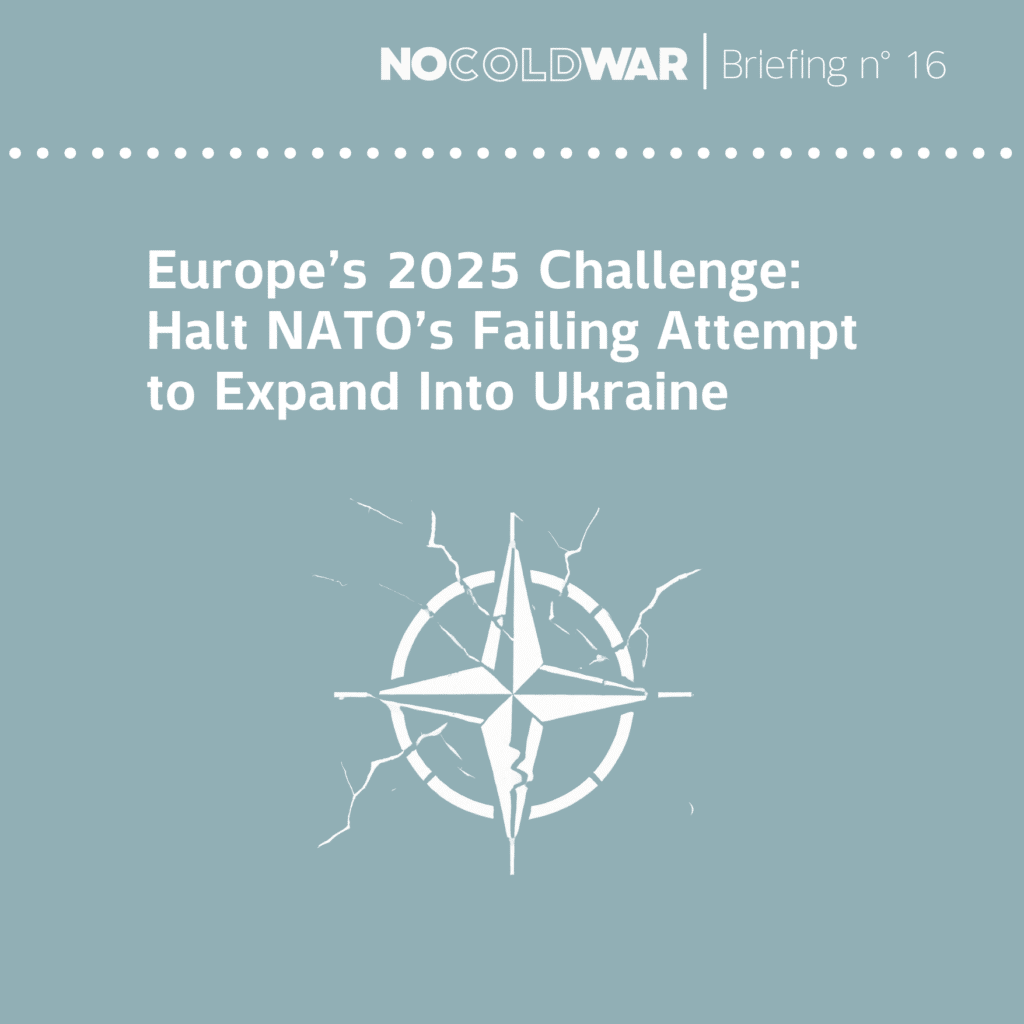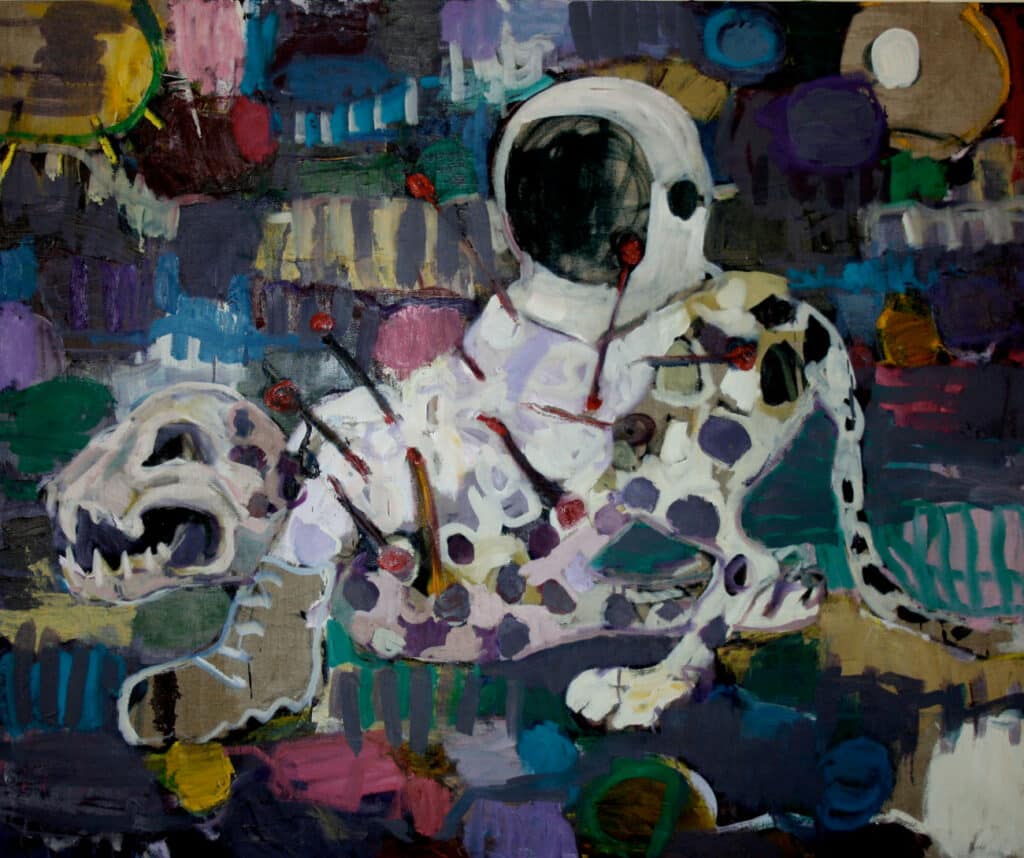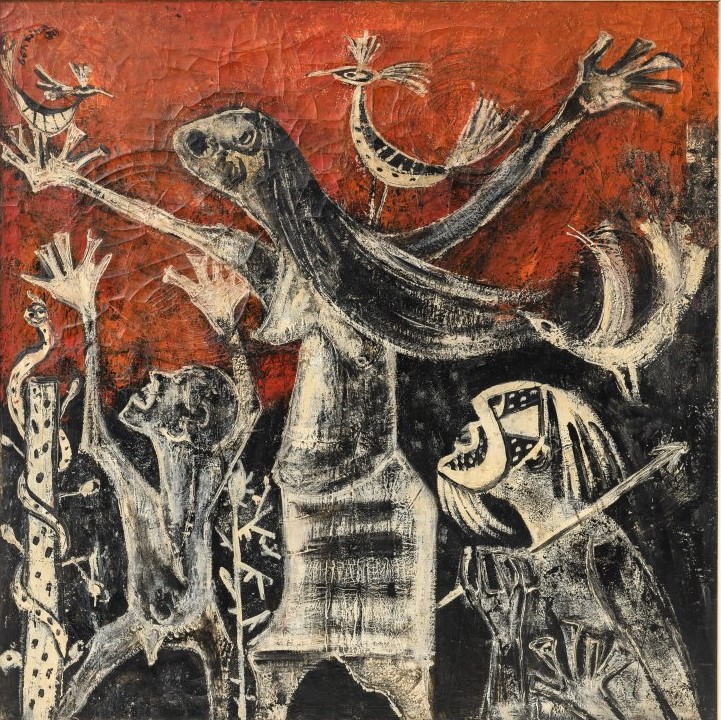Dear friends,
Greetings from the desk of Tricontinental: Institute for Social Research.
Mark Rutte, the current secretary general of the North Atlantic Treaty Organisation (NATO), is not a poet. He, like other secretary generals of NATO, is a mediocre European politician who has been given the task of holding NATO’s reins for the United States (to be fair to Rutte, he has been the prime minister of the Netherlands for fourteen years, but mainly as a survivor rather than a leader). Yet, on 12 December 2024, Rutte gave a speech at the Concert Noble in Brussels (Belgium), a venue rebuilt in 1873 by Leopold II, the brigand king who looted the Congo as its sole owner from 1885 to 1908. This speech was then published on NATO’s website in a very curious form, as a poem rather than the typical bureaucratic prose. Most of the text is banal, but there are four stanzas that I wish to share:
From Brussels, it takes one day to drive to Ukraine.
One day —
That’s how close the Russian bombs are falling.
It’s how close the Iranian drones are flying.
And not very much further, the North Korean soldiers are fighting.
Every day, this war causes more devastation and death.
Every week, there are over 10,000 killed or wounded on all sides in Ukraine.
Over 1 million casualties since February 2022.…..
Russia, China, but also North Korea and Iran, are hard at work to try to weaken North America and Europe.
To chip away at our freedom.
They want to reshape the global order.
Not to create a fairer one, but to secure their own spheres of influence.They are testing us.
And the rest of the world is watching.No, we are not at war.
But we are certainly not at peace either.…..
And, finally, to the citizens of NATO countries, especially in Europe, I say:
Tell your banks and pension funds it is simply unacceptable that they refuse to invest in the defence industry.
Defence is not in the same category as illicit drugs and pornography.
Investing in defence is an investment in our security.
It’s a must!…..
A decade ago, Allies agreed it was time to invest in defence once again.
The benchmark was set at 2%.
By 2023, NATO Allies agreed to invest ‘at least’ 2%.
At least…
I can tell you; we are going to need a lot more than 2%.

Alexander Berdysheff (Georgia), Anticipation of Departure, 2024.
Rutte wrote no such poem for Palestine or for Sudan, where the devastation has been much greater. Only Ukraine, with several evasions and errors of fact, at a time when there is no appetite within Europe to prolong this conflict. Rutte’s poem asks the already austerity-struck NATO states to increase their defence spending to at least 2% of their GDP. Donald Trump has already called to raise the threshold to 5%.
From No Cold War comes briefing no. 16, which provides a clear analysis of the overwhelming opposition to the Ukraine war within the Global South and Europe alike. Please read it carefully, download it, and share it. The clarity of this text speaks directly to Rutte’s doggerel.

From the beginning of the Ukraine war in 2022, countries in the Global South—which contains the overwhelming majority of the world’s population—have opposed U.S. policy towards that conflict. A recent survey found that only two Global South countries have actually implemented U.S. sanctions against Russia over the war, and India increased its oil imports from Russia tenfold during the war’s first year. Global South leaders, such as South Africa’s President Cyril Ramaphosa, stated that the U.S. policy of expanding the North Atlantic Treaty Organisation (NATO) into Eastern Europe lay behind the war.
But, until recently, support for the war seemed firm in the U.S. and among its European allies. This is now changing significantly. Media speculation has focused on Trump’s unsubstantiated claim that he could end the war within 24 hours, but much more substantial is evidence of a sharp change in popular attitudes to the war. This provides the basis for hopes to permanently end the war.

Gülsün Karamustafa (Turkey), Window, 1980.
The Necessity to Restore Economic Links Across Europe
The first pressure changing the situation is economic. On 1 January 2025, for example, a five-year gas transit agreement between Russia and Ukraine expired, ceasing Russian gas exports to Europe via Ukraine entirely and ensuring that the Ukrainian government will shut the pipelines across its territory. The US’s gradual success in achieving its decades-long objective of cutting the direct export of Russian gas to Europe has reduced the living standard of Europe’s population due to soaring energy prices and has simultaneously dealt a huge blow to Europe’s economy. Price shocks from the war spread out to affect many developing economies as well.
U.S. liquid gas exports, on which Europe is now reliant, are on average 30—40% more expensive than Russian gas. Moreover, this Liquefied Natural Gas (LNG) is mostly sourced via the devastating fracking method and transported to Europe in an equally ecologically unfriendly way, on huge LNG carrier tankers.
The tremendous economic damage done to Europe has now created increasing opposition to the war, not least among the working class and households at large. More and more people have come to understand that they pay twice for the war in Ukraine: their taxes underwrite the enormous war and militarisation efforts, and at the same time they bear the brunt of the concomitant rising energy prices and imposed austerity measures.
In Germany, the leadership of Christian Democratic, Conservative, Social Democratic, and other ‘centrist’ parties implemented such U.S.-enforced policies, thereby deeply damaging their own economies and societies. This sort of complicity has defined the approach in most European countries until recently and has continued despite the immense unpopularity it created for their own parties. The overwhelming majority of governing parties in Europe are now deeply unpopular, and there has been a sharp rise of xenophobic and overtly neofascist/fascist forces. In Germany and elsewhere in Europe, there is a sharp rise of support for parties opposing the war. Lately, an increasing number of politicians have openly stated that it is vital for Europe’s economy to break with this disastrous U.S. policy and resume direct supply of gas from Russia, as well as to reinstate normal trade and investment relations with the Global South and BRICS countries, particularly China. Former Finance Minister Oskar Lafontaine summarised this sentiment by saying there should simply be a phone call to Russia to restore the gas supply.

Aubrey Williams (Guyana), Comic Storm, 1977.
NATO Cannot Win the War in Ukraine
The second factor changing public opinion is that the U.S. and NATO are suffering setbacks in the Ukraine war.
NATO’s expansion into Ukraine is, of course, not the only example of U.S.-supported aggression in the present world situation. Notably, in Gaza, Israel and the U.S. are able to carry out unbridled military massacres, atrocities, and genocidal policies against the Palestinian people and other countries in the region. In Europe, however, the U.S. and its allies are confronting Russia, which has the most powerful army on the continent and nuclear forces essentially equal to those of the U.S. The latter appears incapable of winning this proxy war; only direct intervention by NATO military forces, risking global nuclear war, would turn this around.
The dragging on of the Ukraine war, which has resulted in hundreds of thousands of victims —including thousands of children—and widespread devastation, has led to a sharp change in public opinion. In Ukraine, polls now show that 52% of the population supports the position that ‘Ukraine should seek to negotiate an ending to the war as soon as possible’. Only 38% support the view that ‘Ukraine should continue fighting until it wins the war’.
In Romania’s first-round presidential elections in November, after Diana Șoșoacă, a candidate opposed to the war, was banned from the election, Călin Georgescu, who also opposes the war, came in first place. Romanian authorities, with U.S. support, responded by cancelling the election.
In December 2024, a YouGov survey of Germany, Britain, France, Italy, Spain, Sweden, and Denmark showed a sharp increase in support for a negotiated settlement. In four of these countries—Germany, France, Spain, and Italy—the position to ‘encourage a negotiated end to fighting, even if Russia still has control of some parts of Ukraine’ had more support than the view to ‘support Ukraine until Russia withdraws, even if this means the war lasts longer’.
In the U.S., only 23% of the population thought ‘supporting Ukraine’ should be a U.S. foreign policy priority.

María Cenobia Izquierdo Gutiérrez (Mexico), Dream and Premonition, 1947.
The Situation in Ukraine
Re-establishing normal, mutually beneficial economic ties across Europe is necessary for the region’s economy but is only a first step in bringing an end to the disastrous Ukraine war that U.S. imperialism has imposed on Europe.
NATO’s expansion effort is interrelated with the situation within Ukraine, which has a very large Russian-speaking minority (around 30% of the population) that is a majority in the East and Southeast of the state. Experiences in countries such as Canada and Belgium confirm that bilingual states can only be held together by strict guarantees of linguistic and other rights of the different communities and avoiding policies which are totally unacceptable to either.
Nonetheless, from the 2014 Maidan coup onwards, the Kyiv government, supported by the U.S., has set out to suppress the rights of the Russian-speaking minority. As the Council of Europe’s Venice Commission, which cannot at all be accused of being pro-Russian, stated, ‘the current Law on National Minorities is far from providing adequate guarantees for the protection of minorities… many other provisions which restrict the use of minority languages have already been in force since 16 July 2019’.
Both the attempt to oppress the Russian-speaking population and the question of NATO membership for Ukraine are two issues that must be resolved in order to bring a permanent end to the war.

Misheck Masamvu (Zimbabwe), Voodoo Astronaut, 2012.
The Conditions for an End to the War in Ukraine
Europe should undertake honest, serious efforts to bring the Ukraine war to an end. Building on public opinion that is longing for peace and progress and on a peace movement with a strong working-class component, European social and political forces must promote the following steps to end the war in Ukraine:
- Opening peace negotiations without preconditions.
- Calling for a ceasefire.
- Opposition to NATO membership of Ukraine.
- Recognition of language rights across Ukraine and the rights, including self-determination, of the Russian-speaking majority in the East and Southeast of Ukraine.
- End of involvement by NATO countries in the Ukraine war, including a halt to all arms sales and withdrawal of all military personnel and trainers from Ukraine—the money saved to be used for strengthening social spending and public services.
It will take a significant period for Europe, and the world, to recover from the disastrous effects of U.S. policy in the region. Permanently halting the war in Ukraine is an indispensable first step.

Bertina Lopes (Mozambique), Grido grande (Big Cry), 1970.
The steps drawn up by No Cold War are not only logical and humane: they are also the only way forward. All wars end in negotiations. So will this one.
Warmly,
Vijay

